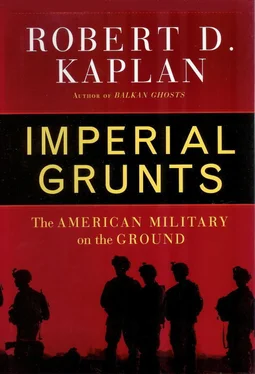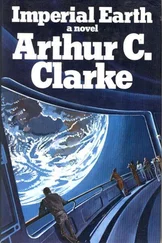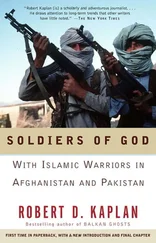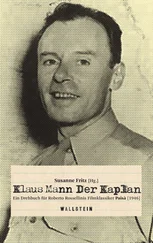Smith immediately began ordering marines onto rooftops; he wanted “guardian angels” everywhere when daylight arrived. Because there was a shortage of lightweight portable ladders, marines had to scramble onto each other’s shoulders.
Smith; his 1st sergeant, Scott Van De Ven of Grayling, Michigan; a radio operator whose name I neglected to write down; and I scrambled onto a roof, only to find that rather than the flat empty space we had anticipated, this roof and every other one nearby was cluttered with rusted and discarded mufflers and tailpipes, to such an extent that we all had to pitch in and make space just to lie down and rest, in shifts. I managed an hour’s sleep. I used one of the rusted mufflers as a pillow and awoke covered in filth. I looked around in broad daylight to see the roofscape of Al-Fallujah covered with thousands upon thousands of old mufflers and tailpipes, guarded by U.S. Marines, standing atop this part of the city with fixed bayonets.
Mosques and factories loomed in the distance. It was truly ugly: the classic terrain of radicalism, occupied by the lumpen faithful. 20Islamic radicalism should be distinguished from Islamic conservatism. Conservatism is about tradition, often featuring a high degree of aesthetics, and is notably represented by the royal courts of Morocco, Jordan, and the Gulf states. But radicalism germinates from a break in tradition, when Dar al-Islam (the House of Islam) finds itself amid the alienating anonymity of early-industrial-age slums and shantytowns, where traditions can be maintained only by reinventing religion in a more abstract and ideological form. Indeed, Al-Fallujah’s ancient-looking factories had a Cold War, Eastern Bloc quality to them that reminded me of 1980s Romania.
First Sgt. Scott Van De Ven immediately began calling over the intra-squad radios for water, chow, and radio batteries. Capt. Smith had other concerns: the marines were spread out too sparsely at intersections and on the rooftops, even as suspicious late-model cars began prowling the area. The bad guys were casing our locations. Smith immediately demanded the establishment of roadblocks over the ICOM and battalion “tac.” The empty streets and closed shops were signs that we would soon be attacked.
It was impressive the way the insurgents, as well as the local population at large, could gather information about the marines so quickly. British Col. Callwell wrote at the end of the nineteenth century that indigenous forces are helped by a system of intelligence that seems to issue from the soil itself:
News spreads in a most mysterious fashion. The people are far more observant than the dwellers of civilized lands. By a kind of instinct they interpret military portents…. Camp gossip is heard by those who are attracted by the ready payment which supplies brought to a civilized army always meet with, and it flies from mouth to mouth till it reaches the ears of the hostile leaders. [91] C. E. Callwell, Small Wars: Their Principles and Practice (1896; reprint, Lincoln: University of Nebraska Press, 1996), pp. 52–54. The fact that the U.S. military needed to adapt to such frustrations of counterinsurgency was somewhat ironic, given that unconventional guerrilla warfare had been part of the American military tradition since the French and Indian War of the mid-eighteenth century. On the western slopes of the Appalachians, English settlers mustered light infantry, ranger, and reconnaisance units, often small and nimble, working with Indian auxiliaries against the French and their Indian allies. And that tradition did not die, for the American Revolution itself, not to mention the many small wars that followed, saw the U.S. military fight both as insurgents and as counterinsurgents. It was only the two world wars, with their emphasis on mass infantry movements, that finally obscured this vitally useful legacy, forcing it to be painfully relearned in places like Afghanistan and Iraq. See Fred Anderson’s Crucible of War: The Seven Years’ War and the Fate of Empire in British North America, 1754–1766 (New York: Knopf, 2000), p. 411.
Smith ordered marines off the rooftops and to new locations. He and his men broke into an automobile repair shop, where Bravo established a POS, or forward headquarters “position.” Stripped-down MREs and water soon arrived by truck. I had just poured water into the heating filter for a Country Captain Chicken MRE, and was preparing to remove some clothing layers beneath my flak vest, as the weather had turned hot after a freezing night, when RPG and small arms fire rattled the scrap iron that formed the roof of the filthy garage headquarters.
The fire directed at us did not let up. Over the ICOM, Smith learned that it was coming from a mosque on Michigan about three hundred meters away. The mosque was gridded for a possible air strike, and everyone began a fast march toward it.
Smith did not really have to order the marines straight into the direction of the fire. It was a collective impulse, a phenomenon I would see again and again over coming days. The idea that marines are trained to break down doors, to seize territory and beachheads, was an abstraction until I was there to experience it. Running into the fire rather than seeking cover from it goes counter to every human survival instinct—trust me. I was sweating as much from fear as from the layers of clothing I still had on from the night before, to the degree that it felt like pure salt was running into my eyes from my forehead. As the weeks had rolled on, and I got to know the 1/5 marines more as the individuals they were, I had started deluding myself that they weren’t much different from me. They had soft spots, they got sick, they complained. But in one flash, as we charged across Michigan amid whistling incoming shots, I realized that they were not like me; they were marines. It is no exaggeration to say that Capt. Smith and Bravo literally rode to the sound of the guns.
We ran through several residential lots until we were just outside the gates of the mosque. It had a Persian-style blue dome though it was Sunni. Then the firing stopped. One of Smith’s corporals, Robert Dawson of Staten Island, New York, led a squad of nine marines inside the mosque. His men detained two people and found some arms, but most of the gunmen had fled just as Smith’s men and other marines were closing in on it.
“I want to IO the shit out of this place tomorrow,” Smith said, referring to information operations—dropping leaflets, painting graffiti. The point was “to let them know that if they flagrantly use mosques for offensive operations, their mosques lose their protected status,” he told me.
We crossed back to the southern side of Michigan amid sporadic fire. I had stopped ducking—you do get used to anything. A car approached. It was the mayor, Mohammed Ibrahim al-Juraissey, and his bodyguard. The mayor asked if it was safe for him to continue down the street. Out of the blue he started complaining about the reporting of the local al-Jazeera correspondent. There was something bizarre and dreamlike about this. Smith, ignoring the bit about al-Jazeera, told the mayor: “We tried our very best, sir, to shoot them [the gunmen in the mosque]. But we are new to the city. Next time we will be more efficient.”
Directly across the street from the mosque, on the southern side of Michigan, was an apartment building which the marines had suspected was being used to fire on them. They had searched it and ordered a large family with children and babies into the courtyard. Smith approached the male head of the family to apologize. Smith stood erect now, except for a slight hunch in his shoulders, his hands deep in his pockets, a position I would see him take often when he was deciding, thinking, or about to say something important. He stared unblinking at the man, the same way he had at the police chief in Al-Karmah.
Читать дальше












